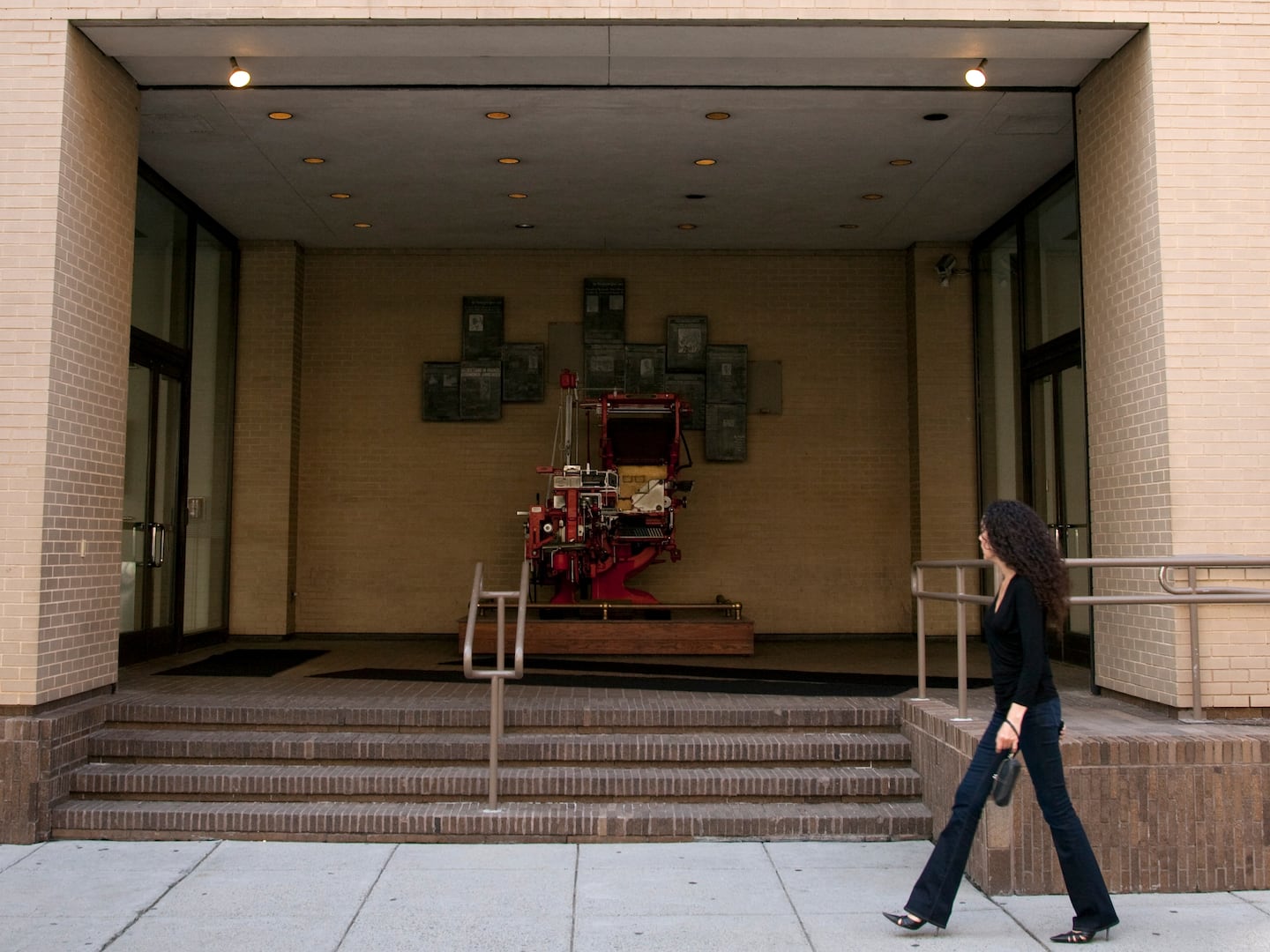Democrats almost universally agreed that last week’s Supreme Court ruling on partisan gerrymandering—which found that the federal courts don’t have a role to decide whether districts are drawn fairly—was nothing short of a disaster for democracy.
As they digested the decision, however, a rift emerged among them over whether or not the high court’s decision amounted to a free pass for Democratic-run states to go nuts on drawing the most advantageous lines possible for the party in power.
Some leaned into the realpolitik.
“I don’t see how there’s any other options,” argued Rep. John Yarmuth (D-KY), “because Republicans will do it in the states they have the ability to do it.”
The lone Democrat in Kentucky’s congressional delegation, he predicted the GOP in the Bluegrass State would try to “break his district.”
“I wouldn’t blame any state Democratic legislature for taking full advantage of it,” Yarmuth continued. “Clearly it’s a license at the federal level to do whatever you want, to be as partisan as you want to be.”
But other Democrats were clearly uncomfortable with the idea that the Supreme Court had informally sanctioned them to carve up purely-advantageous congressional maps. “Just because Republicans have no respect for the Constitution doesn’t mean that two wrongs make a right,” said Sen. Richard Blumenthal (D-CT), who as a senator notably doesn’t have to deal with a gerrymandered district. “We need to be fair and respectful of democratic principles.”
The question is a tricky one for Democrats, who have spent the last decade hammering against the evils of partisan gerrymanders in GOP-controlled states even as their own record in Democratic-controlled states isn’t entirely clean. They argue the manipulation of lines has distorted votes and suppressed Democratic seat pickups in Congress and in state legislatures.
The party has invested heavily in the next round of redistricting, which will take place in 2022 after the 2020 Census and 2020 election, both of which will set the playing field for redistricting. Currently, Republicans control 30 statehouses to Democrats’ 18. (Minnesota’s legislature is split; Nebraska’s unicameral legislature is nonpartisan.) In all but five states, legislatures draw the congressional district lines, and they draw the state-level district lines in all but 11. Governors can veto maps in most, but not all, states.
Most Democrats who spoke to The Daily Beast said they loathed gerrymandering, but couldn’t stomach committing on principle not to get into a map-drawing battle with the GOP. Faced with that tension, they argued for alternative remedies.
Sen. Brian Schatz (D-HI) said that voters should pick legislators that won’t stand for partisan gerrymandering. But the liberal senator, a tough critic of the GOP’s tactics on voting and elections, would not say if he thought Democrats should prepare an all-out strategy of drawing the best districts possible.
“I would have to think about that question before I charge up a partisan mountain or disarm,” he told The Daily Beast.
Another liberal, Sen. Chris Van Hollen (D-MD), said he doesn’t believe in “unilateral disarmament” when it comes to drawing districts. But, he lamented, “this is why it would have been important for the Supreme Court to establish one uniform set of standards, or at least make clear what is unacceptable.”
In the five-justice majority opinion, Chief Justice John Roberts wrote that “Federal judges have no license to reallocate political power between the two major political parties, with no plausible grant of authority in the Constitution, and no legal standards to limit and direct their decisions.” His decision, in layman's terms, effectively put the kibosh on partisan redistricting cases before the court for the foreseeable future.
But that doesn’t mean that all gerrymandering is now sanctioned. On June 17, justices blocked an effort from Virginia Republicans to restore a state legislature map that a lower court had previously struck down as unconstitutionally gerrymandered along racial lines. And some experts interpreted Roberts’ opinion as clearing the way for Congress to pass anti-gerrymandering legislation.
“He invited Congress to take action on this,” said Wendy R. Weiser, who directs the democracy program at the Brennan Center for Justice at NYU. She pointed to Democrats’ H.R. 1, a democracy reform act, which passed the House and contains redistricting measures.
“That’s sort of the more salient next step for members of Congress,” she said, “to take up the mantle of reform, which the public clearly supports.”
As long as Mitch McConnell is Senate Majority Leader, however, such reforms are highly unlikely. In a press conference Thursday, McConnell pointed out that currently-drawn districts didn’t stop Democrats from picking up over 40 House seats in the 2018 midterm election.
Not every Democrat, moreover, is in a state of lament over the Supreme Court’s decision. Sean McElwee, who heads up Data for Progress, a progressive policy shop, said Democrats tend to talk about gerrymandering because it’s an easy target that rallies independents. But, he says, that outrage might be misplaced.
“If you said to me, what is the number one thing about American politics that you could banish into nothing, gerrymandering wouldn’t be my top priority,” McElwee told The Daily Beast. “If underlying trends continue, we become functionally incapable of gaining a Senate majority. That should be the number one concern for the Democratic Party.”
From the viewpoint of the National Democratic Redistricting Committee, the anti-gerrymandering effort led by former Barack Obama attorney general Eric Holder, the Supreme Court has set up a worthy fight. NDRC spokesman Patrick Rodenbush cited an Associated Press analysis that found Democrats would have picked up an additional 16 House seats in the 2018 midterms if not for gerrymandering.
“Our viewpoint,” Rodenbush told The Daily Beast, “is we want fair maps. We think it’s best for the country, best for our democracy, if we have fair maps in the states.” He said there are plenty of avenues for Democrats to pursue —ballot measures to establish independent redistricting commissions, going to state courts, and, of course, winning elections—without having to draw themselves into more permanent majorities.
“Republicans feel comfortable doing whatever they think is necessary to win elections,” Rodenbush said. “The Democratic Party believes in having fair elections, a fair process.”
But that trope—true or not—appeared to feel like a bit of an albatross for some Democrats contemplating the Supreme Court’s ruling on Thursday.
Asked if his party should hold back on gerrymanders of their own–clearly on display in his home state of Maryland, whose maps were directly challenged in the Supreme Court case—Rep. Jamie Raskin sighed.
“Well, sure, Democrats should,” he said. “And Democrats should also always be nice to everybody, too.”







